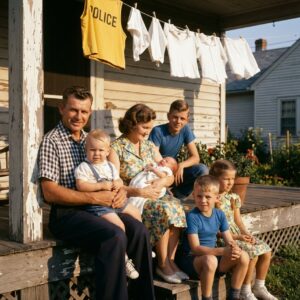While we deeply respect and love our elders, we also recognize that aging brings about more than just wisdom—it involves physical changes as well. One such change is a distinct body odor, often referred to as “old people smell.” Though not a flattering term, science has shown this odor exists. It’s a musty scent with hints of oil or grease, emanating from the pores.
You’ve likely encountered it in a relative’s home, a nursing home, or even at the store. However, it’s important to note that this odor has little to do with hygiene. According to researchers, the smell is caused by a compound called 2-nonenal. As we age, hormonal changes lead our bodies to produce more fatty acids in the skin. With reduced antioxidant levels, these fatty acids undergo oxidation, which results in the production of nonenal. This compound can remain on the skin even after washing and tends to be concentrated around the chest and back.
Several factors can amplify the intensity of this odor, such as dirty laundry, confined spaces, and dehydration. Illnesses and medications may also contribute. A 2001 study published in the Journal of Investigative Dermatology found that older individuals had higher concentrations of nonenal on their clothing. A 2012 study suggested that our ability to recognize this scent might be linked to a subconscious instinct to assess age and health, similar to how animals detect these traits through odor.
In Japan, the smell is called kareishu, and many companies have developed products to combat it, such as perfumes, body washes, and deodorizers. One such ingredient, persimmon, is believed to completely eliminate the odor from the skin.
However, there are practical steps to reduce it. Exercise boosts metabolism and helps maintain hormonal balance while lowering stress levels. Regularly washing clothes is crucial since nonenal can build up on fabrics. Eating a diet rich in antioxidants and staying hydrated can also benefit the skin. Dehydration not only dries the skin but can also contribute to unpleasant odors from the body and mouth.
While good hygiene is important, one of the simplest ways to help is by allowing fresh air to circulate. Aging is a natural process, and the changes that come with it are inevitable. However, showing our elders compassion, respect, and love is timeless.
Does this familiar odor bother you? Were you aware there’s a scientific explanation behind it? What do you think of the specialized products designed to neutralize nonenal’s effects?





